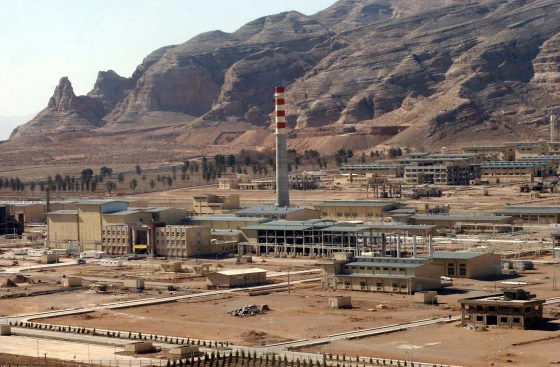Iran has lodged a formal protest with the International Atomic Energy Agency (IAEA) regarding Israeli threats to target its nuclear facilities following a missile attack launched by Tehran earlier this month.
Foreign Ministry spokesperson Esmaeil Baghaee announced that the protest note has been submitted to the UN nuclear watchdog, emphasising that Iran would pursue these threats through various channels.
Baghaee’s remarks come as reports indicate that Israel may be preparing for a major attack on Iran in retaliation for the missile strikes on October 1. Iran noted that the these strikes were a response to the recent assassinations of Hamas and Hezbollah leaders, along with a Revolutionary Guard commander.
Speculation surrounds the possibility that Iranian nuclear sites could be targeted in any Israeli military response. Baghaee asserted that Iran’s position is very clear, stating that any provocation by the Zionist regime will be met with a decisive response.
He added that Tehran has informed the United Nations and other international bodies that its missile attack on Israel was conducted within the framework of the right to self-defence. Baghaee also raised concerns over the deployment of US anti-missile defence systems in the region, warning that this would pose a threat to Israel.

The spokesperson expressed contentment that regional nations have reached an understanding that maintaining peace and security in the region is a shared responsibility, emphasising that these countries will never allow their soil to be used for aggression against any other country in the region.
Baghaee further noted that Iran’s approach toward enhancing relations with Europe has faced a negative response due to recent sanctions on Iranian airlines, which he claimed only serve to deprive people of their fundamental rights.
He referenced Iranian Foreign Minister Abbas Araghchi’s recent discussions with leaders of three European nations in New York, where nuclear issues and other matters were on the agenda.
Regarding Araghchi’s recent diplomatic tour across the region, including Iraq, Lebanon, Oman, Saudi Arabia, Jordan, Egypt, and Turkey, Baghaee highlighted positive signs stemming from these discussions aimed at halting Israeli attacks in Gaza and Lebanon.
Concerning the Muscat Process, which involves indirect negotiations between Iran and the US, Baghaee explained that it has been paused due to recent regional developments. However, he noted that communication between Tehran and Washington continues through specific channels, notably via the Swiss Embassy in Tehran.


